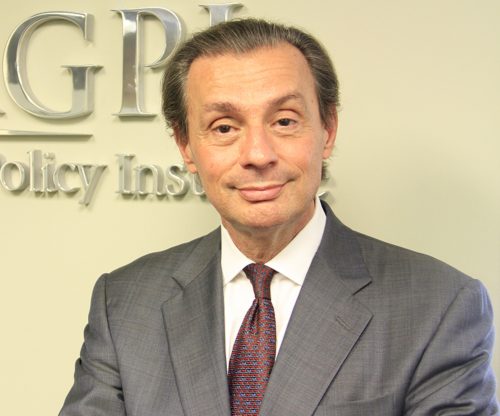Issue Briefs
Accurate Tests from One Drop of blood?
By Paolo von Schirach
November 25, 2024 – Some may remember the story of Elizabeth Holmes, the very young American entrepreneur, Stanford University dropout, who founded Theranos, a company that supposedly was able to manufacture blood test equipment that allowed to perform scores of blood tests utilizing only a drop of blood.
Imagine that. Suddenly, the typical patient would not need to go to a medical facility where a significant amount of blood would be drawn to perform a limited number of tests. None of that. Anybody could go to any pharmacy or drug store. Once there, a simple and painless prick on a finger. A drop of blood would be collected, and then the Theranos futuristic machines would do all the tests, “while you wait”. Just like getting new heels on your shoes. A simple, painless, mundane task.
Great innovation, everybody thought. Elizabeth Holmes, now a billionaire based on the valuation of her company, was on the cover of all the important business publications. Major U.S. pharmacy chains were negotiating agreements with Theranos so that these user-friendly tests could be performed on their premises.
And, down the line, think about the health care revolution in emerging countries. No need for expensive labs. Just get the equipment, and any locality, even in rural areas, could perform a vast number of tests, this way allowing all people to learn about their health conditions.
Great innovation, indeed. Except that it was a gigantic, well designed, hoax. The Wall Street Journal investigated Theranos and exposed the fraud. Elizabeth Holmes was charged with fraud, put on trial and sentenced to 11 years in jail.
But now it seems that others, this time for real, are coming close to the same goal. An article published in the Stanford Daily titled ‘Theranos that works’: Stanford researchers say they’ve measured thousands of molecules from a single drop of blood tells us that what Holmes pretended to be able to do is now quite possible.
The article tells us that “Stanford researchers say they’ve accomplished what Theranos was unable to do: they’ve developed a new approach that can measure thousands of molecules with about one drop of blood.
“Genetics department chair and senior author Michael Snyder said his lab has combined a micro sampling device with multi-omnic technology, a biological analysis approach, to measure thousands of molecules from 10 microliters of blood (about a single drop).”
“I call it ‘Theranos that works,’” Snyder said. “Medicine is very antiquated; now, you go to a physician, they draw lots of blood, they measure 10 to 15 things. What we’re trying to do is measure thousands of molecules, so we get a much clearer picture of what’s going on.”
There is no aura of secrecy surrounding the new (and still experimental) technology, as it happened with Theranos. This time around, the claims have been vetted and peer reviewed. The Stanford scientists explain that by using a new device called Mitra, a portable device that can be used for remote specimen collection, it is possible to collect a minimal amount of blood that will be sufficient to conduct a vast number of tests.
That said, the scientists involved are careful in not exaggerating what their new technologies can do, at this time. This is still work in progress –-they warn. Research and experimentation are ongoing, while all findings are made public, so that others can evaluate them. The researchers now can compare the data derived from their tests with data from traditional methodologies to determine accuracy. Those involved are very optimistic about future developments.
There are already plans to look at commercial applications, at least for early diagnosis of some chronic diseases. However, it will take time before getting to full scale commercialization of these new tests’ methodologies. That said, at least this time the investors will not be duped by the false claims concocted by clever fraudsters, as it happened with Theranos.
Legal Disclaimer:
The Global Policy Institute (GPI) publishes this content on an “as-is” basis, without any express or implied warranties of any kind. GPI explicitly disclaims any responsibility or liability for the accuracy, completeness, legality, or reliability of the information, images, videos, or sources referenced in this article. The views expressed are those of the author and do not necessarily reflect the opinions or positions of GPI. Any concerns, copyright issues, or complaints regarding this content should be directed to the author.
 |
Paolo von Schirach is the President of the Global Policy Institute, a Washington DC think tank, and Professor of Political Science and International Relations at Bay Atlantic University, also in Washington, DC. He is also the Editor of the Schirach Report. |